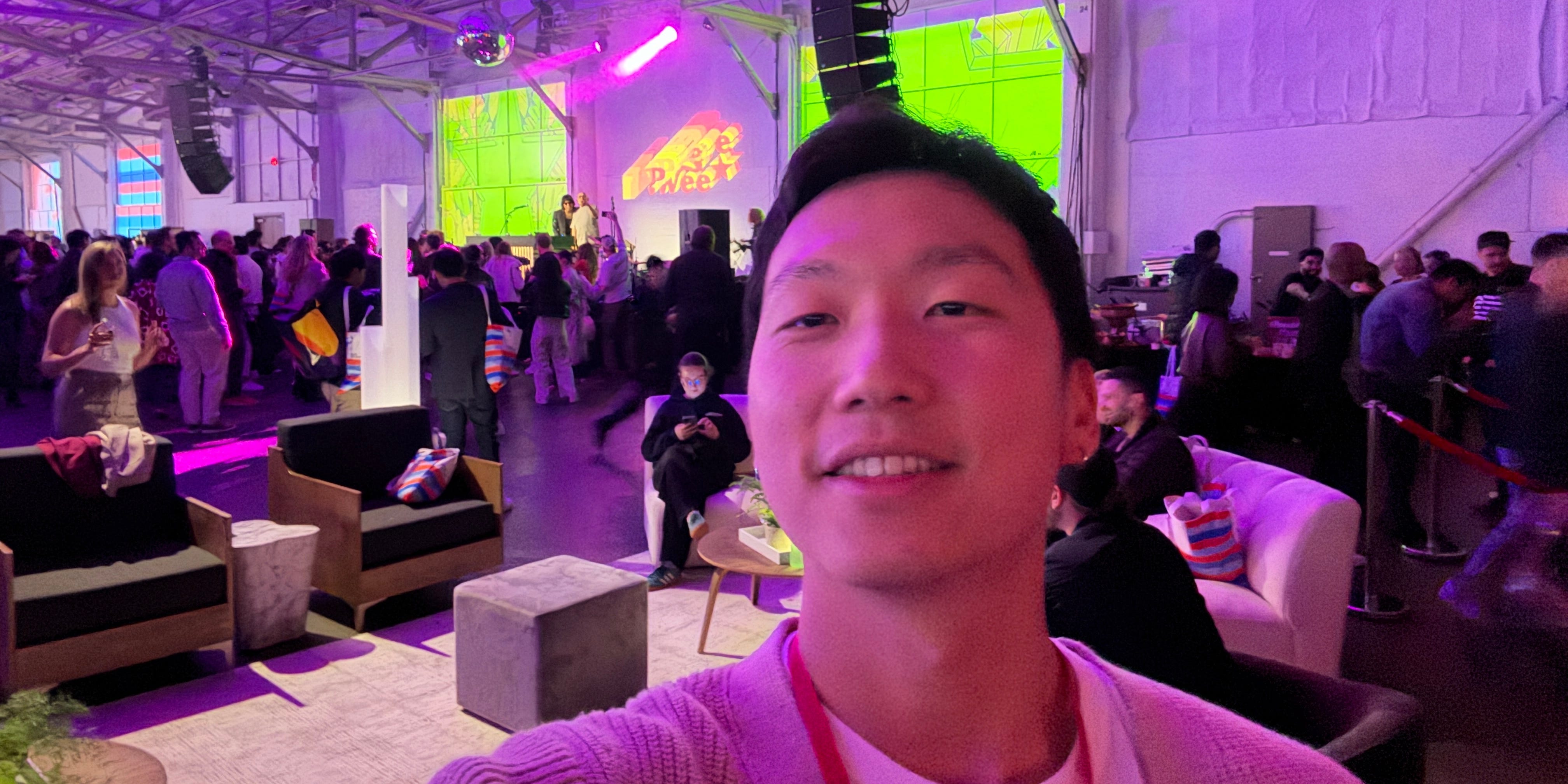
Lloyd Lee/Business Insider
World, a crypto-slash-biometric security startup, had a splashy keynote on Wednesday at San Francisco’s Fort Mason, where cofounders Sam Altman and Alex Blania had an Apple moment, with sleek product unveilings and their biggest push to date for an “everything app.”
I went to see what the buzz was all about.
One of the more interesting selling points previously highlighted by my colleague Lakshmi Varanasi is that World, or at least Altman, is looking ahead to a time when artificial intelligence necessitates universal basic income. In the future, people could need a secure method to access their UBI — Altman proposes that World’s iris-scanning Orb can provide that.
“The way that AI is going forward, I think we’re going to have a problem with jobs,” Patrick Sobczak, a curious attendee at World, told me. “I assume the main goal for this, or the end goal sometime in the future, is to provide infrastructure for universal basic income. At least that’s my guess.”
World’s keynote didn’t really go into that.
The startup’s executives instead showed their all-encompassing secure platform called the World App, where users could freely connect, play games, and exchange currency. The Orb would be the security apparatus that helps protect everything on the platform.
Attendees who opened a World account also automatically got about $40 worth of Worldcoin crypto, as the coin launched that night for the first time in the US. Before, the coin was available in more than 20 countries in South America, Europe, Asia, and Africa.
The event included a ton of food, drinks, swag, and a surprise musical guest: Grammy Award-winner Anderson .Paak, performing under his alias DJ Pee .Wee.
I had a chance to use the orb and hear more about World’s pitch.
Here are my takeaways.
World wants your iris — and your trust
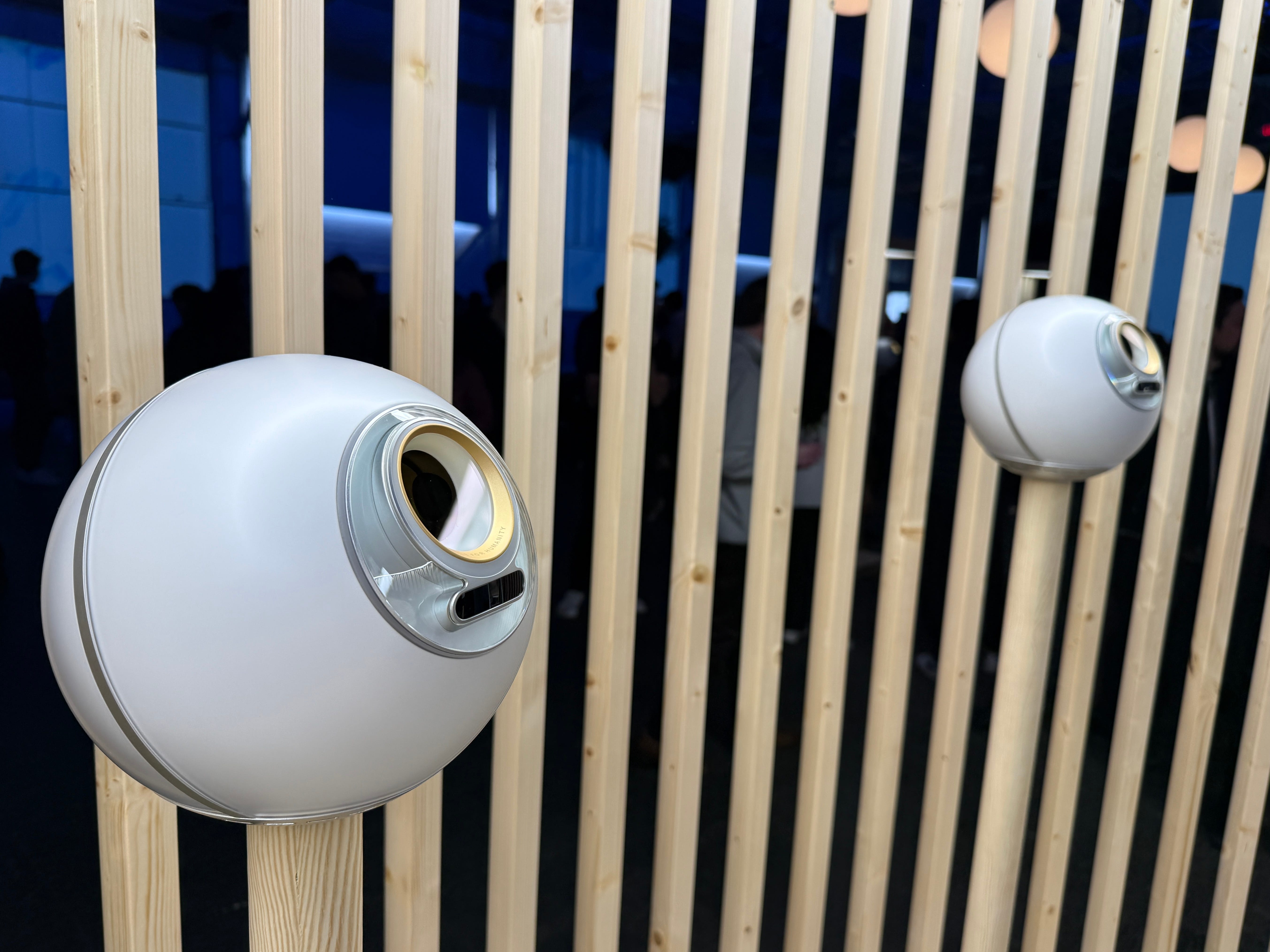
Lloyd Lee/Business Insider
One of its more curious projects is the 9-inch diameter Orb that scans your iris. The pitch is to create a secure device that verifies one’s “humanity” in an age of increasingly sophisticated bots and artificial intelligence.
The process is simple and a bit amusing if not slightly dystopian.
The World App provides users with a QR code that the Orb scans. Then, the Orb asks you to “open your eyes wide” and “look into the mirror” of the device.
“Verifying your humanity” and “uniqueness,” the app said as it uploaded my biometrics.
Once that was finished, the app welcomed me to the “World” and let me know where I ranked among the people who had joined the network. I’m the 12,732,325th person to be verified.
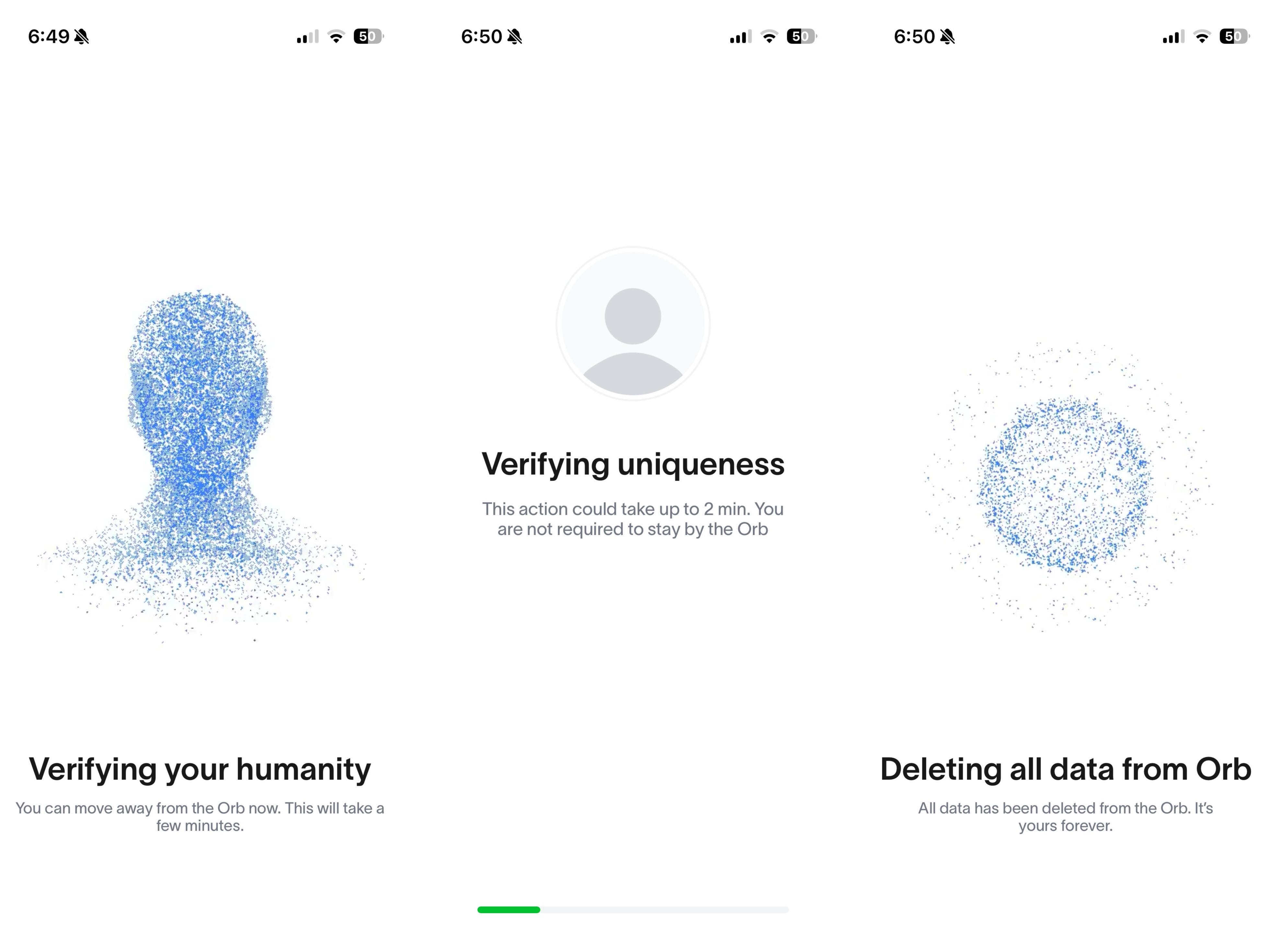
Lloyd Lee/Business Insider
The World App also said that all of the iris data the Orb just collected is immediately deleted from the device.
Adrian Ludwig, chief information security officer of Tools for Humanity, the company that developed World, said during the evening’s press conference that the Orb doesn’t store images, and they are not transferred to any backend services.
“World doesn’t hold those images, Tools for Humanity doesn’t pull those images — they are encrypted and then given to the user,” he said.
One of the pitches here is that Orb could be used as a secure POS system for a business, such as a coffee shop, without the need for an operator or worker.
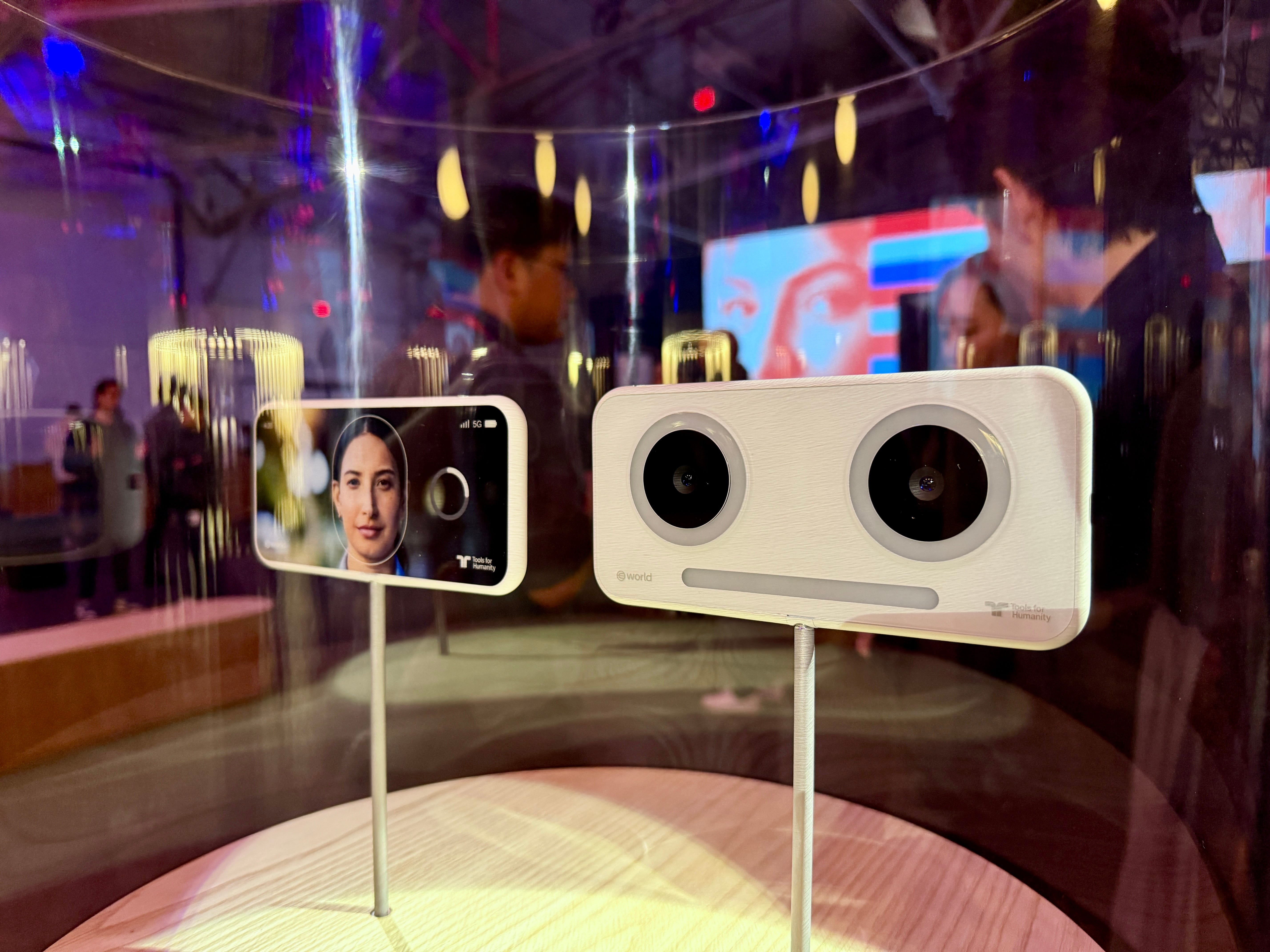
Lloyd Lee/Business Insider
The startup also debuted the Orb Mini, a smartphone-shaped device that people or businesses can use to verify another person’s identity during a transaction.
Blania said that as the World network grows, he envisions a future where proof-of-humanity will be incredibly valuable to platforms such as dating apps. This, in turn, could open up lines of revenue in which World can charge fees to companies that want to use the verification system, he said.
Patriotism was an underlying theme of the night
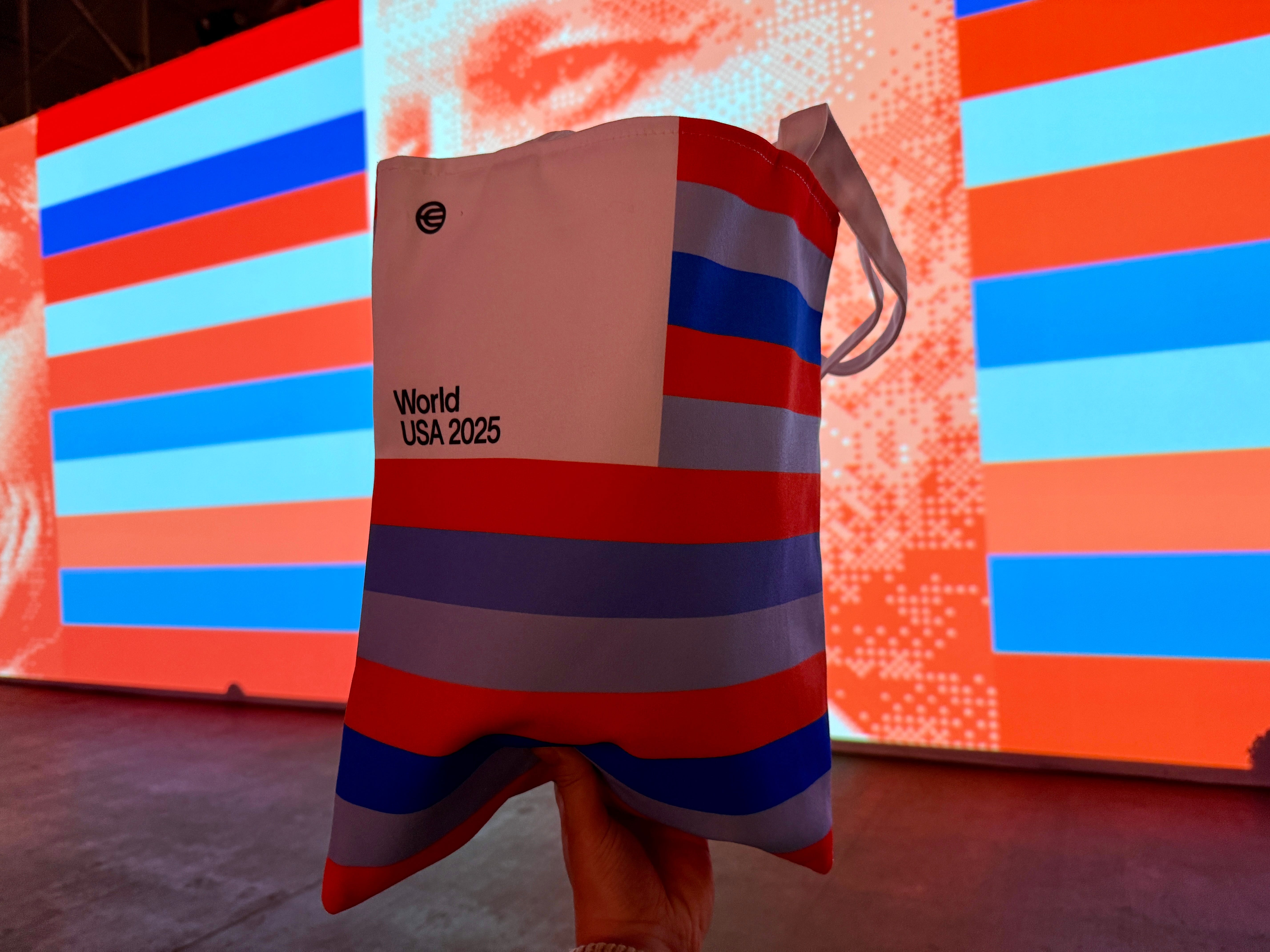
Lloyd Lee/Business Insider
“At Last” was the cryptic tagline and name of the event, and that moment was World’s launch in the US, including six Orb stores and a cryptocurrency, Worldcoin.
“We started the company right here in San Francisco near South Park, and we wanted to scale it to the entire world,” Blania said. “And so, of course, what has been missing is the United States of America.”
The announcement triggered brief chanting from the audience: “USA, USA, USA!”
While the audience tuned into the keynote on one side of the venue, the other half of the building was quietly decorated with digital projections of stripes resembling those of the American flag.
The tote bag and merch were also branded with flag symbology.
“I think this is awesome. I’m a very proud American. I think America should like lead innovation, not fight it off,” Altman said. “And this has been sort of a sad thing about tech in America. And so to kind of right this wrong, finally — I’m very happy.”
Some reporters at the press conference were curious if World timed the launch with the arrival of the second Trump administration, which has promised to be more crypto-friendly.
“A lot of things influenced that decision,” Blania said. “The political environment is certainly part of it, and kind of the outlook for regulatory clarity in the US was a big part of it. We really always take a very conservative approach in acting with regulators, because we think what we do is very, very important and very, very critical. And so we’d rather take it slowly and carefully, and that’s how we treated the US before.”
World has a long road ahead for adoption
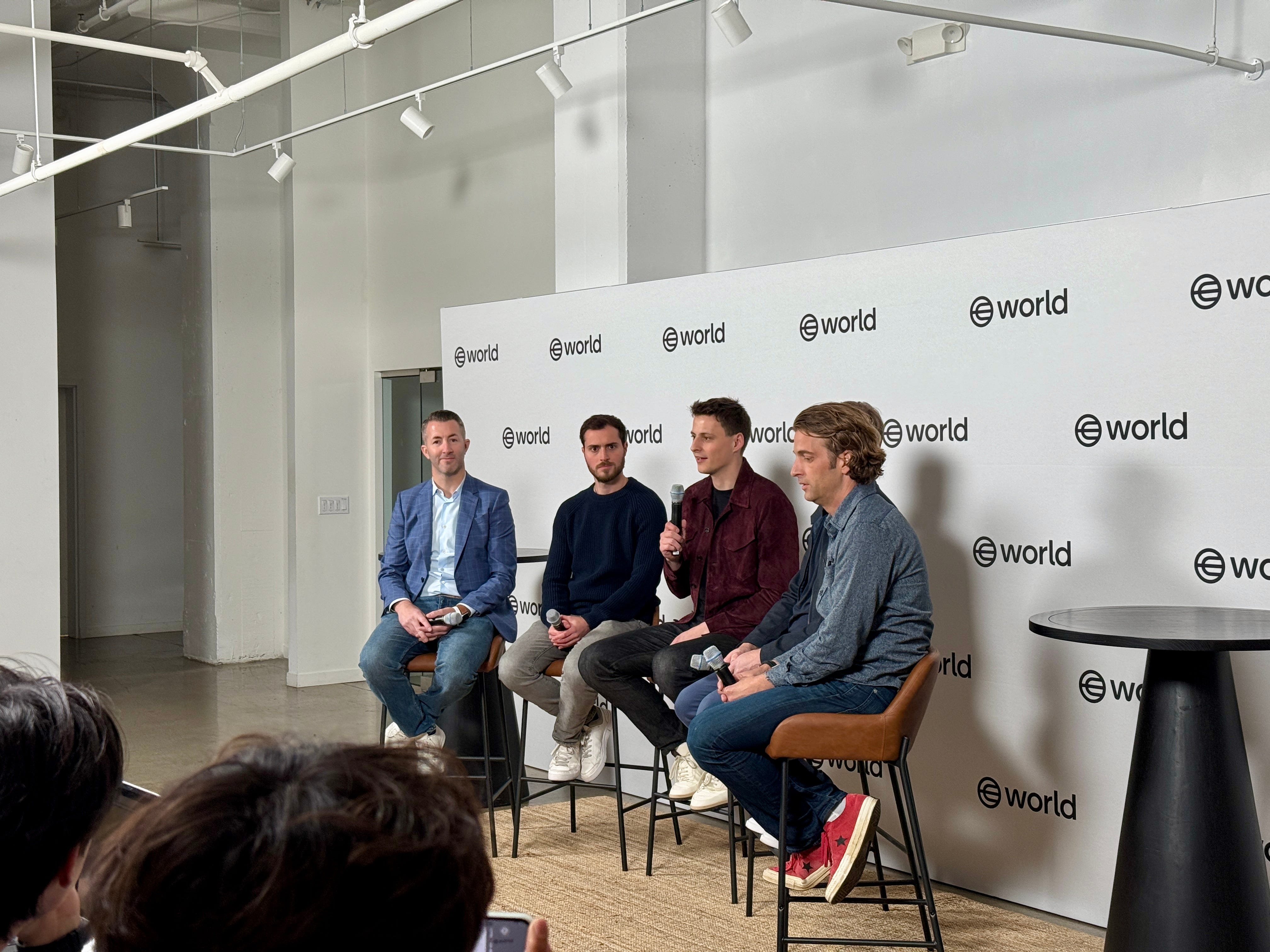
Lloyd Lee/Business Insider
World said that the app now has more than 26 million users and 12 million “verified” users.
Jake Brukhman, CEO of CoinFund and early investor in World, told me that the startup showed one of the “best Web3 go-to market that we’ve ever seen.”
“I’m a crypto investor, so I care very much about bringing Web3 to mainstream consumers, mainstream businesses,” he said, referring to the decentralized vision of the internet. “I think this is the strongest play to do that.”
Still, the Orbs are far from ubiquitous, even in the city where the company was born.
World also has encountered various regulatory hurdles related to data collection and privacy practices in Spain, Argentina, Kenya, and Hong Kong.
“I think it’s important to mention that there has only been one ban and that is in Hong Kong,” Damien Kieran, Tools for Humanity’s chief privacy officer and former Twitter executive, said after the keynote. “Otherwise, currently, we have many conversations.”
The value of Worldcoin also has a long journey ahead. I watched the crypto’s value fall a couple of cents throughout the night, from $1.08 to $1.06.
Some attendees told me this a wait-and-see moment for World.
Tarun Gogineni, an OpenAI researcher, told me “proof-of-human” is important, but was skeptical of World’s approach.
“I don’t think giving Orb access to seven billion people in the world is going to happen anytime soon,” he said, adding, “The smartest people are not working on this right now.”
The post I uploaded my biometrics at the keynote for Sam Altman’s buzzy crypto company. Here are 3 takeaways. appeared first on Business Insider.




